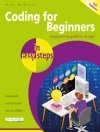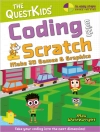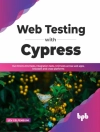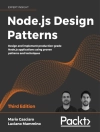COOP 2012 is the tenth COOP conference, marking twenty years from the first conference in 1992. In this special anniversary edition we asked researchers and practitioners to reflect on what have been the successes and the failures in designing cooperative systems, and what challenges still need to be addressed. We have come a long way in understanding the intricacies of cooperation and in designing systems that support work practices and collective activities. These advances would not have been possible without the concerted effort of contributions from a plethora of domains including CSCW, HCI, Information Systems, Knowledge Engineering, Multi-agent systems, organizational and management sciences, sociology, psychology, anthropology, ergonomics, linguistics, etc. The COOP community is going from strength to strength in developing new technologies, advancing and proposing new methodological approaches, and forging theories.
Inhaltsverzeichnis
Preface.- Establishing a Core Health Record: A Case Study from Norwegian Healthcare.- Standardizing Work in Healthcare through Architecture, Routines and Technologies.- The Clinical Work of Secretaries: Exploring the Intersection of Administrative and Clinical Work in the Diagnosing Process.- Exploring the Virtual Space of Academia.- The Not-So-Open Wikis: Structures of Collaboration at Work.- Harvesting Collective Agreement in Community Oriented Surveys: The Medical Case.- Classifying Communities for Design: A Review of the Continuum from Co Is to Co Ps.- The Trouble with ‘Knowledge Transfer’: On Conduit Metaphors and Semantic Pathologies in Our Understanding of Didactic Practice.- Divergence and Convergence in Global Software Development: Cultural Complexities as Social Worlds.- Creating Metaphors for Tangible User Interfaces in Collaborative Urban Planning: Questions for Designers and Developers.- Collaborative Problem Solving with Objects: Physical Aspects of a Tangible Tabletop in Technology-Based Assessment.- End-users’ Integration of Applications and Devices: A Cooperation Based Approach.- Social Aspects of Place Experience in Nobile Work/Life Practices.- Maintaining the Instant Connection – Social Media Practices of Smartphone Users.- Supporting Collaborative Work in Socio-Physical Environments: A Normative Approach.- Exploring Collaboration in Group-to-Group Videoconferencing.- Use of Graphical Modality in a Collaborative Design Distant Setting.- Struggling against Social Isolation of the Elderly – The Design of Smart TV Applications.- Examining Multiactivity using Multi-camera Recordings: The Use of Text Chat in a Call Center.- Agentville: Supporting Situational Awareness and Motivation in Call Centres.












